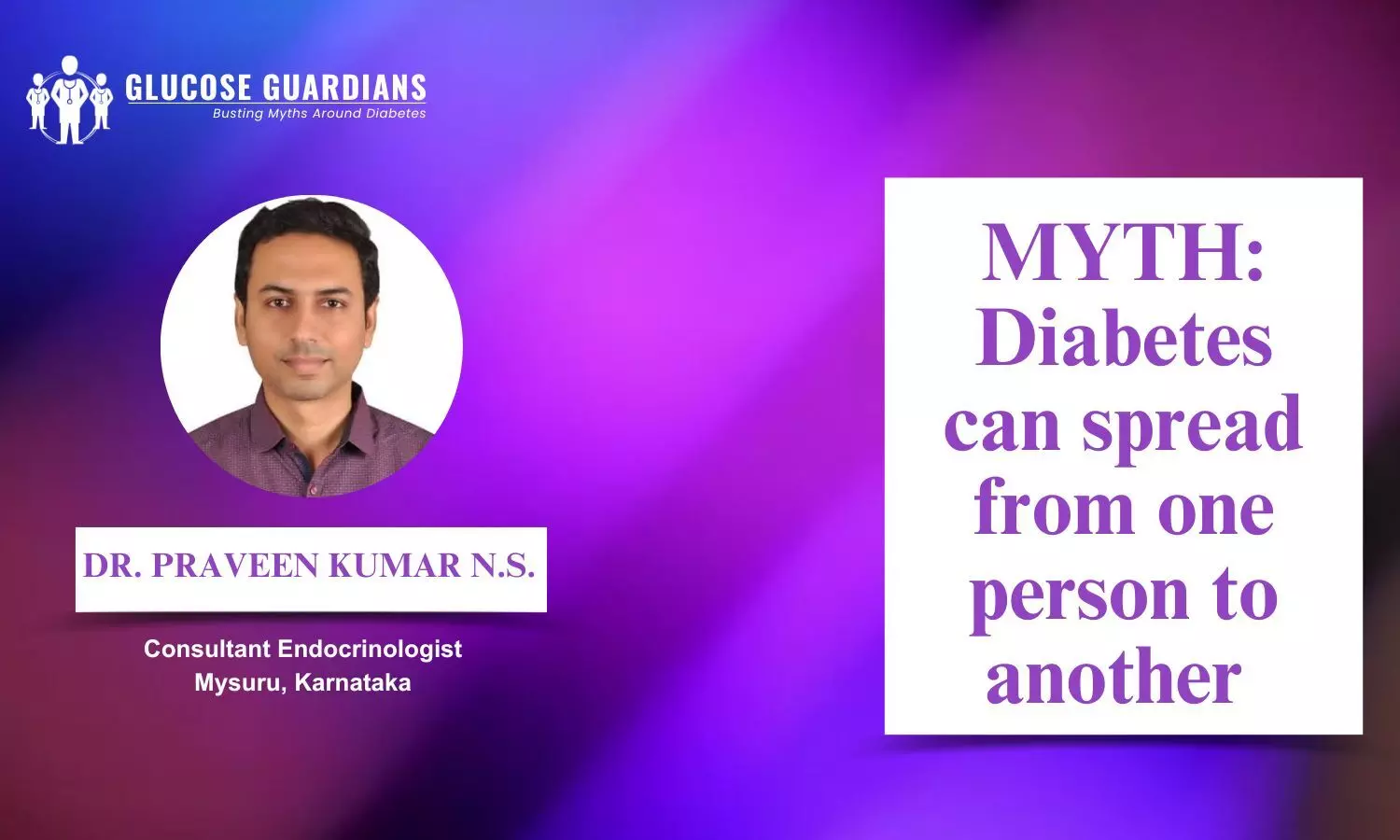- Home
- Medical news & Guidelines
- Anesthesiology
- Cardiology and CTVS
- Critical Care
- Dentistry
- Dermatology
- Diabetes and Endocrinology
- ENT
- Gastroenterology
- Medicine
- Nephrology
- Neurology
- Obstretics-Gynaecology
- Oncology
- Ophthalmology
- Orthopaedics
- Pediatrics-Neonatology
- Psychiatry
- Pulmonology
- Radiology
- Surgery
- Urology
- Laboratory Medicine
- Diet
- Nursing
- Paramedical
- Physiotherapy
- Health news
- AYUSH
- State News
- Andaman and Nicobar Islands
- Andhra Pradesh
- Arunachal Pradesh
- Assam
- Bihar
- Chandigarh
- Chattisgarh
- Dadra and Nagar Haveli
- Daman and Diu
- Delhi
- Goa
- Gujarat
- Haryana
- Himachal Pradesh
- Jammu & Kashmir
- Jharkhand
- Karnataka
- Kerala
- Ladakh
- Lakshadweep
- Madhya Pradesh
- Maharashtra
- Manipur
- Meghalaya
- Mizoram
- Nagaland
- Odisha
- Puducherry
- Punjab
- Rajasthan
- Sikkim
- Tamil Nadu
- Telangana
- Tripura
- Uttar Pradesh
- Uttrakhand
- West Bengal
- Medical Education
- Industry
Can diabetes be transmitted from one person to another? - Dr Praveen Kumar N.S
Overview
Diabetes is a chronic condition characterized by elevated blood sugar levels due to inadequate insulin production or the body's inability to use insulin effectively. It's concerning due to potential complications affecting the heart, kidneys, eyes, nerves, and more. However, diabetes isn't contagious and cannot spread from one person to another.
Contrary to the myth, diabetes is not transmissible through casual contact or airborne means like a cold or flu. It's a result of genetic, lifestyle, and environmental factors impacting an individual's insulin production or utilization. Diabetes develops due to a combination of genetic predisposition and factors such as obesity, sedentary lifestyle, unhealthy eating habits, or other health conditions.
In this video, Dr Praveen Kumar N.S. Consultant Endocrinologist from Mysuru, Karnataka demystifies diabetes and addresses the misconception surrounding its transmission. Dr. Kumar sheds light on the nature of diabetes and its significance while dispelling the myth that diabetes can spread from person to person.





